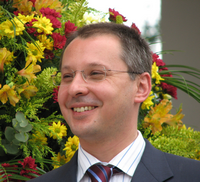SOFIA, Bulgaria -- The gas is back on in Sofia, but Bulgarian Prime Minister Sergei Stanishev is still feeling the political chill. Increasingly out of favour in Brussels and frozen out by fair weather friends in Moscow, Stanishev's government also faced the wrath -- and hurled bricks -- of street protestors in recent weeks. It was an inauspicious start to a year featuring elections that could be crucial in reinvigorating the country's reform process and restoring relations with its European partners. Bulgaria's big freeze came to an end on Jan. 20, when gas flows from Russia via Ukraine -- cut two weeks before during the dispute between Moscow and Kiev -- were resumed. Stanishev and his government were not directly implicated in the shut-off, but the crisis succeeded in bringing Bulgaria's relationship with Moscow into the spotlight and acted as a catalyst for public discontent. The government's troubles also extend to the Brussels seat of the European Union. The socialist-led coalition brought Bulgaria into the EU in 2007. Since then, Sofia's turbulent relationship with Brussels has been punctuated by a string of scandals, marked last year by the suspension of around €1 billion of EU funding due to corruption and mismanagement in the Balkan country.
Bulgaria’s Ruling Coalition Feels the Chill

